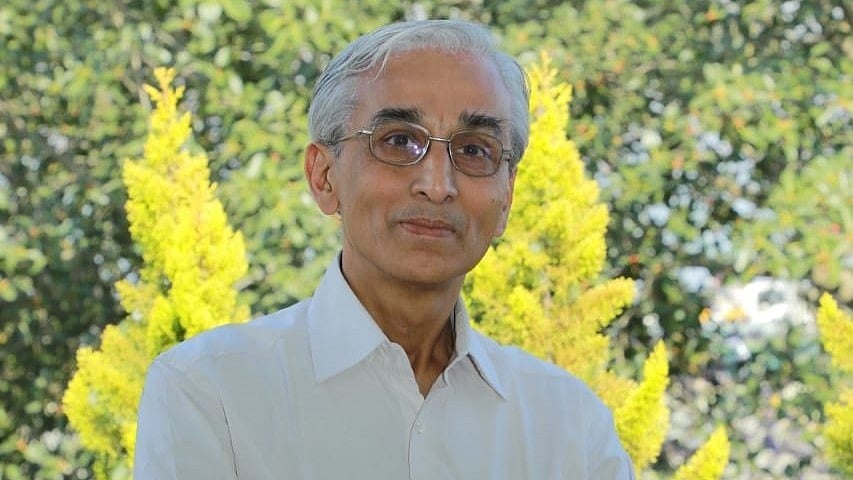
Credit: DH Photo
Bengaluru: Bengaluru-based early-stage venture capital firm, Athera Venture Partners (previously Inventus India), which is on its fourth fund (initiated in 2023) has lately set its eyes on generative artificial intelligence (GenAI), as part of its endeavour to court emerging technologies.
“GenAI…we are keeping an eagle eye on but proceeding very cautiously. We’ve made one small investment in a company called Hyperbots, that is using GenAI to make the accounts payable process more efficient,” Samir Kumar, one of the four general partners helming Athera, told DH.
Pointing out that it’s been 5-6 years since the company started pitching fund in emerging technologies, such as its investment in a space technology company Pixxel, he added, “We’ve also done and will continue to do hardware-software companies where the intelligence is in the software, like Euler Motors, Ati Motors, and BluArmor.”
But the company, which has been focussed on technology, be it in the business to customer or business to business sphere, right from the beginning, GenAI is a bus it cannot miss.
“Our sense is that across the enterprise space, there will be many different specialised applications of GenAI. One of the decisions we’ve made for our firm is that we will not do infrastructural large language models (LLMs), for example. We will not try and compete with Open AIs, ChatGPT, or Gemini, or Metas. We think that those are capital intensive plays and not for a fund like ours. What we will do is probably vertical applications of LLMs, like those that have been trained on certain domain specific features to become more efficient,” Kumar elaborated.
The company that started out as Inventus India in 2008, has floated four funds to date. Inventus Capital Partners (Mauritius) Ltd was launched in 2008 with a fund size of Rs 146 crore. Inventus Capital Partners Il Ltd came in 2013 with a fund size of Rs 323.5 crore.
Next was Inventus IlI India Fund in 2018 with a corpus of Rs 360.8 crore. It is now in the midst of its fourth fund - Athera Fund IV - under which it has already made four investments and is on the verge of completing a fifth - again an emerging technology firm based out of Bengaluru.
“It is building intelligent vision that allows robotic arms to do things that they couldn’t do earlier. The final documentation and announcement should be done in the next week or two. We are putting in about Rs 17 crores, in a round that will be about Rs 75-80 crores. We are leading the round. Existing investors are putting in some money. And we’ve got a few new investors who are co-leading it with us,” Kumar elaborated.
The company is presently in the process of issuing a sixth term sheet for a company in the B2C space, which should happen in about a week. “We intend to create a portfolio of about 16-20 companies so we are almost one-third of the portfolio constructed,” Kumar informed.
While the company does not see any near-term profitable exits currently, it is caught up in continuing financing rounds in its portfolio companies.
“Clootrack closed around last year. Vunet is in the process of closing a Rs 60 crore round. Tricog is closing a round. Ati Motors will raise a round and close it soon. One of our fund four companies, Terra, has got a term sheet to raise money at an up round, less than a year after our investment. MoveInSync will publicly list in the next 18 to 24 months,” he listed out.
Government oversight
Reacting to the recently launched Bharat Startup Knowledge Access Registry (BHASKAR) that proposes to bring startups and prospective investors together, Parag Dhol, the other Athera general partner DH spoke to, observed, “The regulatory burden in this country doesn’t seem to be going down even as industry is going up, which is not good for the industry or the country. Hopefully, some of these initiatives will lead in this direction.”
On the other hand, Kumar averred, “Smart entrepreneurs will figure out how to reach investors. Good investors will figure out how to reach entrepreneurs. To get them together, the government doesn’t need to play a role.”
He is also not too happy about the rising regulations from the Securities and Exchange Board of India (Sebi) binding alternative investment funds (AIFs).
“The AIF regulations came in 2012-13. They were a well-crafted set of regulations and the AIF industry proliferated after that. But they can stop meddling with those regulations. They have been coming up with more and more things that I think make life difficult for AIFs in terms of the compliance burden, regulatory burden,” Kumar said.
Regional balance in the start-up story
Asked if Delhi was stealing march over Bengaluru, in terms of startups graduating to floating IPOs, Dhol pointed out that Bengaluru too had its turn with Ola Electric and the upcoming Swiggy offering.
If Delhi has done well in the B2C segment, it is not so strong in software as a service (SaaS), deep tech, and hardware-software combination. “When it comes to emerging technology, I think Bangalore is going to be a leader,” he noted.
He also saw other cities finding their niche in different segments, such as Chennai in Saas and Hyderabad in space. “Now that technology is getting enmeshed in every aspect of our lives, some of these cities will stand out for specific things,” he added.